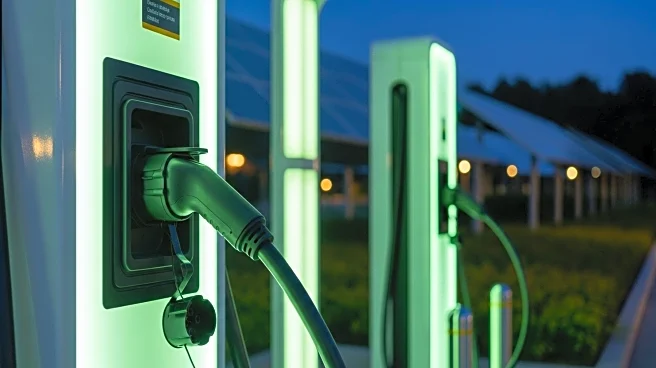What is the story about?
What's Happening?
Kenya is facing challenges in adopting electric cars due to high import duties and taxes, which significantly increase the final price for consumers. Despite Kenya's clean energy grid, which generates 90% of its electricity from renewable sources, the adoption of electric vehicles remains low. The import duties and VAT on electric cars are substantial, with the duty-free price of a BYD Sealion 7 rising from 8.7 million Kenyan shillings ($67,180) to 14.6 million Kenyan shillings ($112,740) after taxes. This has led to a lag in electric car adoption compared to other African countries like Ethiopia and Rwanda, which have reduced or eliminated import duties on electric vehicles.
Why It's Important?
The high import duties on electric cars in Kenya are hindering the country's ability to leverage its clean energy resources and reduce reliance on fossil fuels. Accelerating electric vehicle adoption could significantly cut urban air pollution, reduce noise, and lower operational costs for consumers. It would also help absorb surplus clean energy generated during off-peak hours, potentially reducing energy costs for households and businesses. Other African countries have seen positive results from reducing import duties, with Ethiopia banning ICE vehicle imports and Zambia experiencing a 330% surge in EV imports. Kenya's slow progress in this area is puzzling given its potential benefits.
What's Next?
Kenya could benefit from policy changes that reduce or eliminate import duties on electric vehicles, similar to actions taken by other African nations. Such changes could catalyze the adoption of electric cars, helping Kenya achieve its green economy goals and reduce its fossil fuel import bill, which currently stands at $500 million per month. Stakeholders in Kenya are encouraged to focus not only on electric motorcycles but also on electric cars to accelerate adoption and maximize environmental and economic benefits.
Beyond the Headlines
The slow adoption of electric cars in Kenya highlights broader issues in policy-making and economic strategy. Encouraging electric vehicle adoption aligns with global trends towards sustainability and could position Kenya as a leader in green technology within Africa. The potential reduction in fossil fuel imports also presents an opportunity to improve Kenya's trade balance and invest in local clean energy generation.















